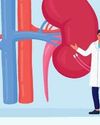
What are they?
Processing of food isn’t a problem in itself. In fact, most of the foods we eat are processed in some way before we eat them. Techniques such as heating, pasteurising, canning and drying are all forms of processing, which can help to make foods safe, edible and more suitable for storage. Examples include canned legumes, frozen vegetables, pasteurised milk, canned fish and even freshly made bread.
But the ultra-processing of food is different. Ultra-processed foods are defined as formulations of food substances (ingredients you wouldn’t typically find in your home kitchen), often combined with additives designed to make the food palatable, and typically created by a series of industrial techniques and processes. They are designed to be convenient, hyper-palatable and highly profitable due to their low-cost ingredients and long shelf life.
What is the impact of ultra-processed foods on our health?
The research is clear – higher intakes of ultra-processed foods have been associated with an increased risk of:
-
type 2 diabetes
-
cardiovascular disease (both heart disease and stroke)
-
dying from cardiovascular disease
-
cancer, including breast cancer
-
depression
-
frailty
-
irritable bowel syndrome
-
asthma in children and adolescents
-
cardiovascular risk factors in children and adolescents
-
dying from all causes
On the other hand, diets high in unprocessed or minimally processed foods have been associated with several health benefits.
This story is from the July-August 2021 edition of Diabetic Living Australia.
Start your 7-day Magzter GOLD free trial to access thousands of curated premium stories, and 9,000+ magazines and newspapers.
Already a subscriber ? Sign In
This story is from the July-August 2021 edition of Diabetic Living Australia.
Start your 7-day Magzter GOLD free trial to access thousands of curated premium stories, and 9,000+ magazines and newspapers.
Already a subscriber? Sign In

A whole new world
Being diagnosed with type 1 diabetes as an adult can be a challenging and confusing time. In this extract from the JDRF's new book, Straight to the Point, they explain what's going on and what to say to people who make uninformed comments about your condition

5 Days 5 Dinners
Weeknights are sorted with these fresh, flavoursome mains, packed with veg!

Fantastic Feta
This soft, white cheese with Greek origins is versatile and packs a flavour punch, with only a small amount needed to jazz up a dish

My story: "I'm proud of the fact that I've gotten hold of my health"
When Natalie Rixon, now 33, discovered she had prediabetes soon after she'd turned 20, it was a shock and a relief all rolled into one. What she did next changed her future.

INTERPRETING YOUR cgm DATA
A continuous glucose monitor is a wonderful source of information but do you really know what you're looking at?

7 NEED-TO-KNOW FACTS ABOUT...diabetes & kidney disease
Diabetes is the most common cause of Chronic Kidney Disease. Learn more about this condition and how to protect yourself from developing it.

GET OFF THE diet ROLLERCOASTER
Dietitian Lyndi Cohen wants you to take a deep breath and think about your weight, and health, in a whole new way.

WHAT IS Wegovy?
Meet Wegovy, the new once-weekly weightloss injection that research shows helps people lose significantly more body weight than those using diet and exercise alone.

MEDICATION & CONSUMABLES
Insulin is available on the Pharmaceutical Benefits Scheme (PBS).

DOLLARS AND DIABETES
When you have type 1 diabetes, it's important to see a variety of health professionals regularly to keep your health on track.